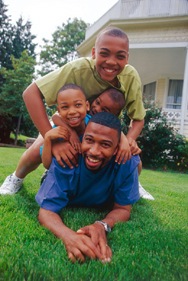


 |
 |
 |
|||||||||||
|
|
|
||||||||||||
|
|
|
|
|
|
|
|
|
|
|
|
|||
|
|
|
|
|
|
|
|
|
|
|
|
|
|
|

|
BBBS of Florida Builds Statewide MCP Program “Nobody’s isolated,” says Deborah Thielen, CEO of the BBBS Florida Association. “Everybody’s learning from each other, sharing materials. It’s really about we’re able to serve more kids in a better way because of the communication that we have among the agencies.” This communication includes monthly conference calls, quarterly board meetings and two annual in-person trainings with all the agencies. In addition, Sherell D. Wilson, operations director for the BBBS Florida Association, has created a virtual workspace for agencies to upload brochures, comments, success stories, etc. All the agencies have access to the workspace. If an agency has difficulties with specific tasks, another agency may have posted a best practice. “So if they are struggling in one area, then they can go right directly on [the virtual workspace] to see what [other agencies] did and try to implement it in their particular area,” says Wilson. Both Wilson and Thielen envision the virtual workspace playing an important role in helping the BBBS agencies in the state meet their goals. A key factor for the MCP collaboration is using the “strengths of all your agencies,” says Thielen. “That means talk to them, let them talk to each other, and set up systems that [make it] easy to do that.” This collaborative approach carries over into the Association’s recruitment philosophy. For instance, volunteers and children are recruited by both the Association and individually by the local agencies. The agencies use a variety of outreach strategies to find volunteers, including radio interviews, newspaper articles, posters, flyers, recruitment breakfasts, principals and guidance counselors, and congregation pastors. To identify children, relationships have been formed with Florida’s Department of Corrections, judges, and schools. “We made it easy for people to contact us,” says Thielen.
Winter
2007 |